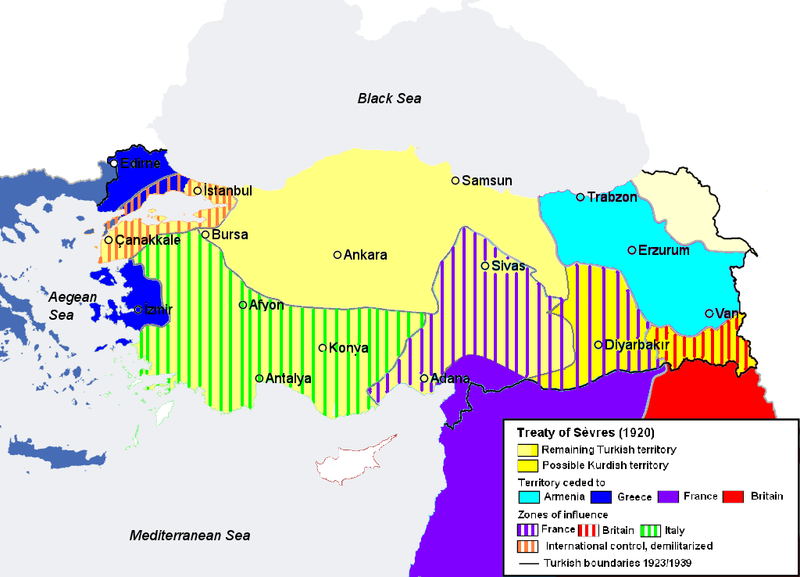|
British
Mandate for Palestine
The
three principles of the British Balfour Declaration regarding Palestine
were adopted in the Treaty of Sèvres:
Article95. "The High Contracting Parties agree to entrust, by application of the provisions of Article 22, the administration of Palestine, within such boundaries as may be determined by the Principal Allied Powers, to a Mandatory to be selected by the said Powers. The Mandatory will be responsible for putting into effect the declaration originally made on November 2, 1917, by the British Government, and adopted by the other Allied Powers, in favour of the establishment in Palestine of a national home for the Jewish people, it being clearly understood that nothing shall be done which may prejudice the civil and religious rights of existing non-Jewish communities in Palestine, or the rights and political status enjoyed by Jews in any other country." Palestine officially fell under the British Mandate. French Mandate of Lebanon The mandate settled to France at the San Remo Conference. Comprising the region between the Euphrates river and the Syrian desert on the east, and the Mediterranean sea on the west, and extending from the Alma Dagh Mountains on the south to Egypt on the south; Area of territory about 60,000 square miles (160,000 km2) with a population of about 3,000,000. Lebanon and an enlarged Syria, which were later assigned again under League of Nations Mandate. The region was divided under the French into four governments as follows: Government of Aleppo from the Euphrates region to the Mediterranean; Great Lebanon extending from Tripoli to Palestine; Damascus, including Damascus, Hama, Hems, and the Hauran; and the country of Mount Arisarieh. French Mandate of Syria Faisal ibn Husayn, who had been proclaimed king of Syria by a Syrian national congress in Damascus in March 1920, was ejected by the French in July of the same year.  Str1977, Wikipedia,
2010
On April 23, 1920, the Turkish Grand National Assembly gathered for the first time in Ankara, making Mustafa Kemal its first president and Ismet Inonü chief of the General Staff. The Turkish revolutionaries never accepted the treaty of Sèvres, which had to be revised. It was superseded by the Treaty of Lausanne, signed July 24, 1923. |